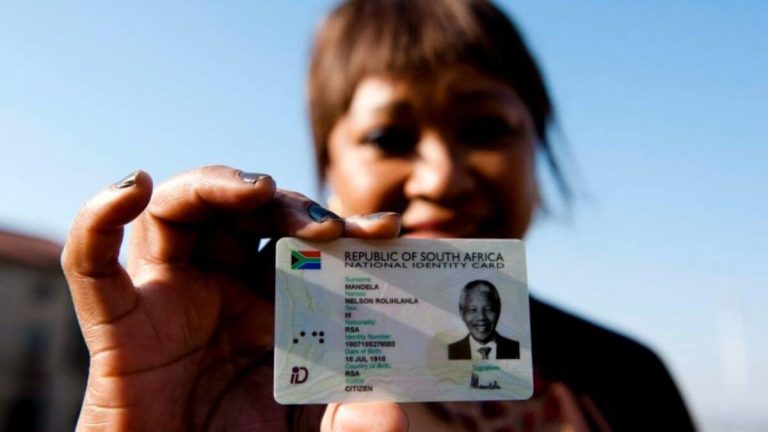South Africans will soon find it much easier to access key Home Affairs services like smart ID cards and passports, thanks to the Department of Home Affairs’ rapidly expanding partnership with the country’s major banks. In the future, citizens may not even need to visit a branch at all — they’ll be able to apply for and receive services directly from their banking apps.
Thank you for reading this post, don't forget to subscribe!Expanding Home Affairs Services at Banks
The Department of Home Affairs (DHA) has confirmed that over 150 additional bank branches will roll out smart ID and passport services before March 2026. This expansion includes new partnerships with Capitec, African Bank, and TymeBank — joining Absa, FNB, Nedbank, Standard Bank, Discovery Bank, and Investec, which already offer eHomeAffairs services.
This move forms part of the Home Affairs @ Home programme, the department’s long-term plan to fully digitise its services and improve access for South Africans across the country. By leveraging banks’ existing infrastructure, the DHA can reach more citizens while cutting queues and streamlining processes.
From Branches to Apps: The Future of Home Affairs
Home Affairs Minister Leon Schreiber has confirmed that, in the longer term, banks are working on making Home Affairs services available through their banking apps. This means citizens will eventually be able to apply for smart IDs and passports remotely — without needing to visit a branch in person.
Digitising services and removing human intervention is also a key step towards curbing fraud and corruption, which have long plagued the department.
The Technology Behind the Transformation
A major part of this transformation has been the upgrade of the Online Verification System (OVS). This system verifies South Africans’ identities when opening bank accounts or accessing services — essentially confirming that the information on a green ID book or smart ID card is accurate.
Previously, the OVS had a failure rate of over 50%, which posed serious security risks and deterred banks from offering Home Affairs services. After a full overhaul, the system now has an error rate below 1% and returns results in less than a second. This reliability has paved the way for banks to roll out services more broadly and to integrate them into their apps.
Lower Fraud Risk, Higher Security
The upgraded system will use biometric technology to securely link Home Affairs and bank systems. Instead of relying on staff to manually verify documents, banks will use Home Affairs’ biometric verification to confirm identities. This significantly reduces the risk of fraud and identity theft — particularly important as South Africa moves to phase out the green ID book.
The End of the Green ID Book
Phasing out the old green ID book is another major priority for Home Affairs. Schreiber has stated that the outdated document is one of the biggest sources of fraud in South Africa due to its reliance on easily manipulated manual photos.
Although Home Affairs launched the smart ID card years ago, access to it remains uneven. Currently, 101 of the 349 permanent Home Affairs offices still lack modernisation, so many residents must obtain the green ID book instead. The expanded bank partnerships aim to close this gap, give more South Africans access to smart IDs, and move the country closer to fully phasing out the green book.
MyMzansi: A Parallel Digital Drive
While Home Affairs’ banking partnerships provide an immediate-term solution, government is also working on the MyMzansi platform — a zero-rated app spearheaded by the Department of Communications and Digital Technologies. MyMzansi will allow citizens to access services like health, vehicle licence renewals, and Home Affairs functions remotely.
However, MyMzansi is a longer-term project. Phase one runs from March 2025 to February 2027 and will focus on developing core digital public infrastructure, including a digital ID. Phase two, between March 2027 and February 2030, will scale up the technologies to include healthcare, education, and business services.
Also check: How to Check UIF Balance Using ID Number: Easy Guide
For South Africans, this dual approach — expanding bank-based services now while building MyMzansi for the future — means faster, easier access to critical services like smart IDs and passports. Whether through your local bank branch or your banking app, applying for and receiving Home Affairs documents is set to become more convenient, secure, and digital.




